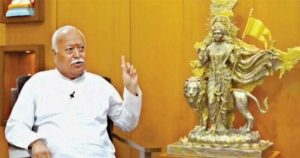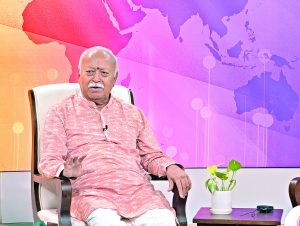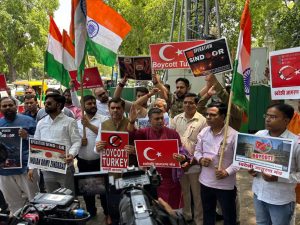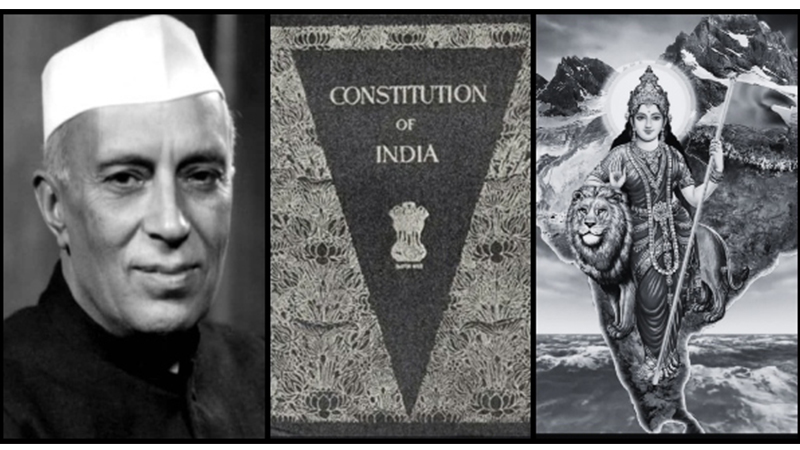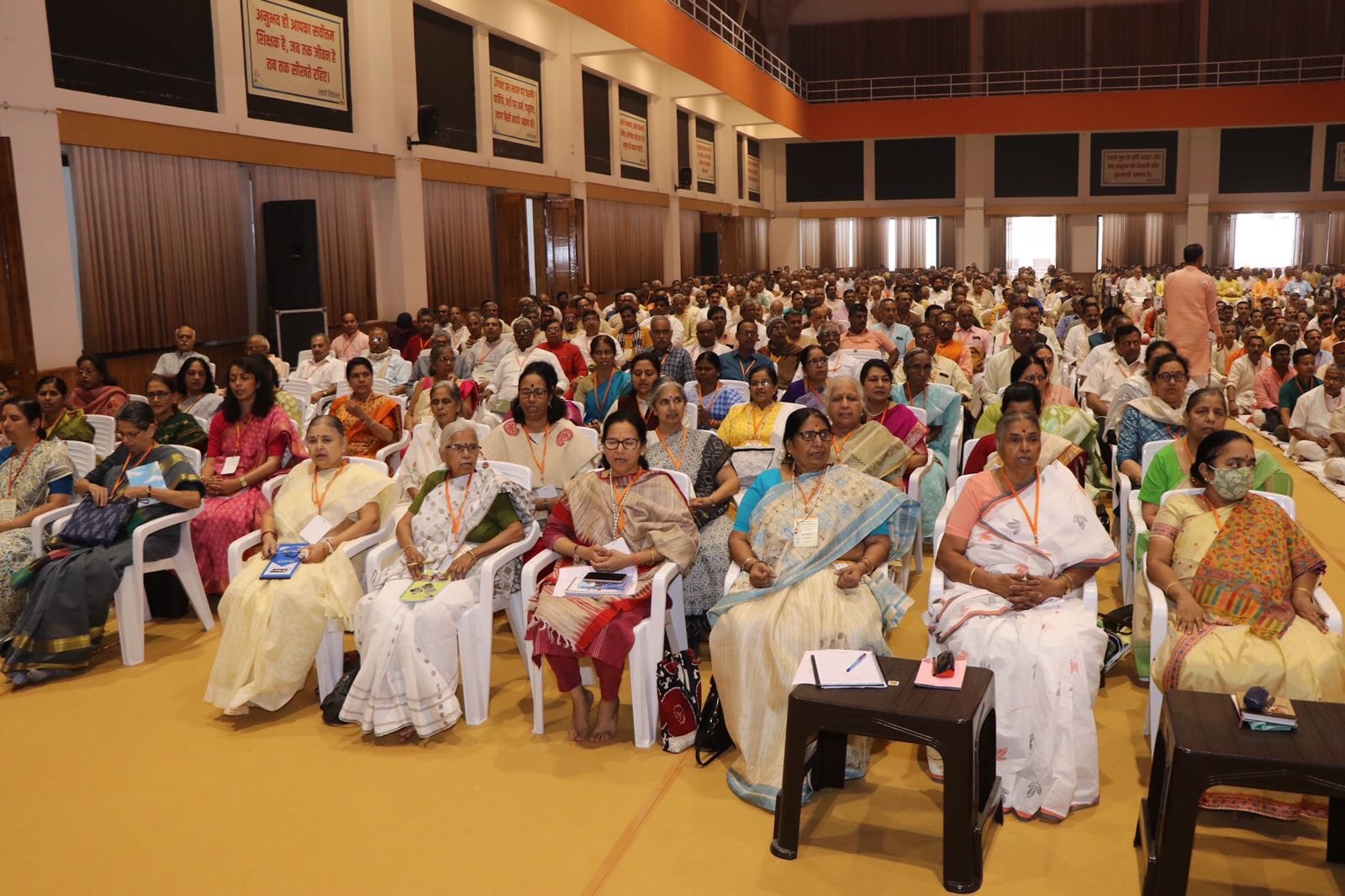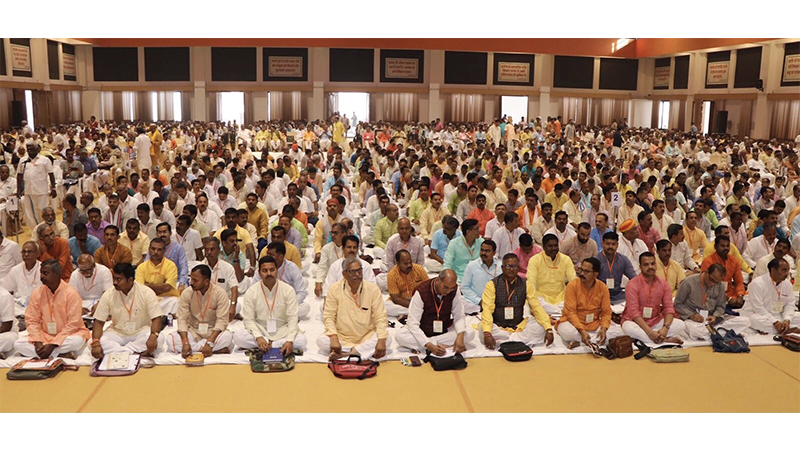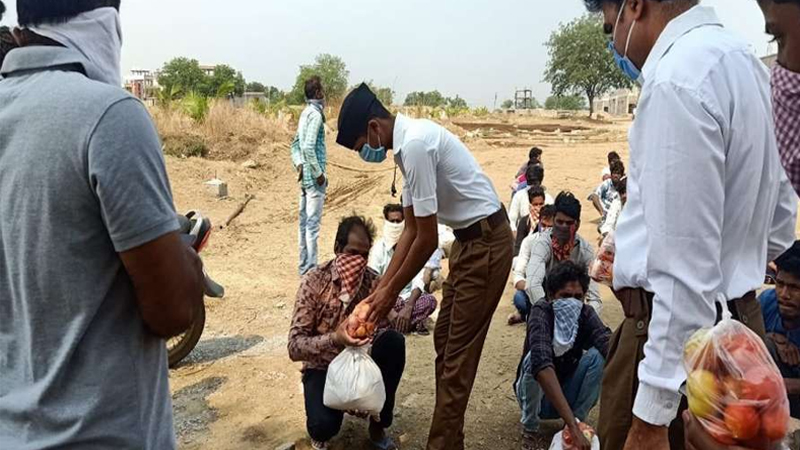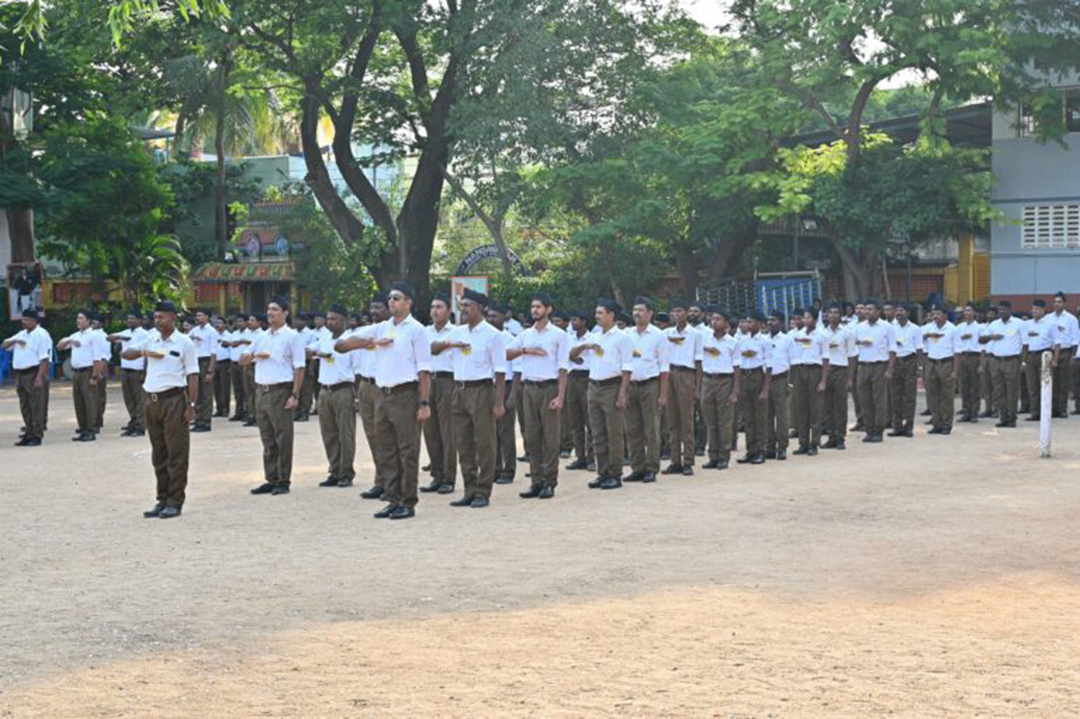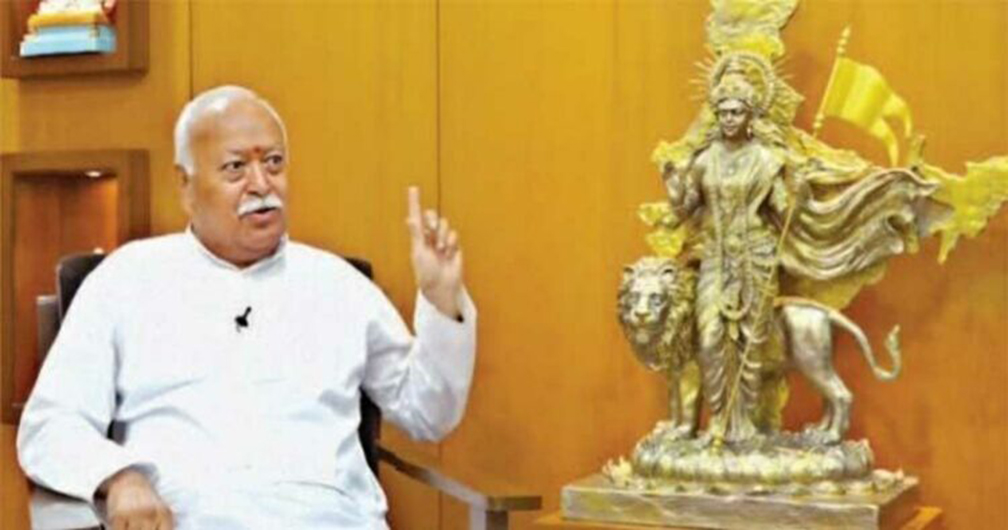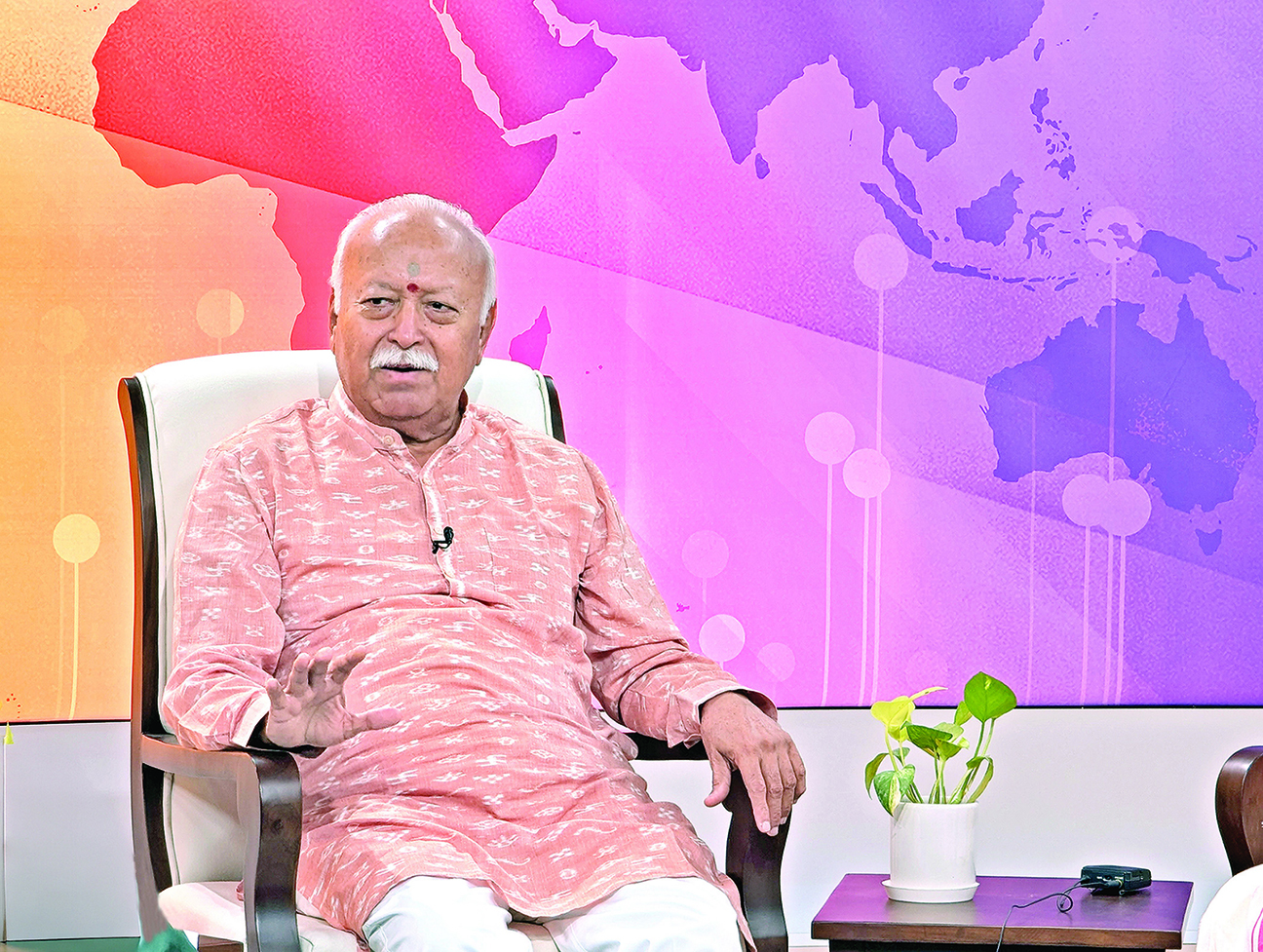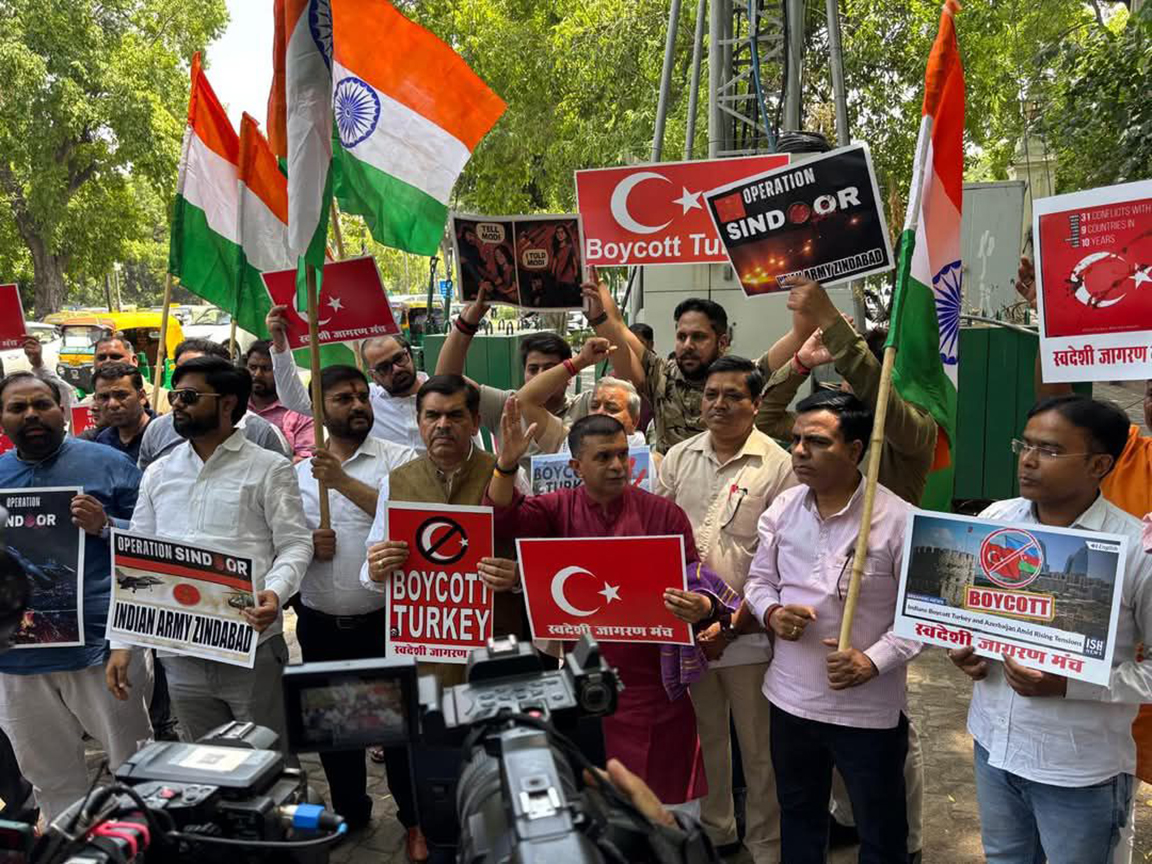Why RSS shouldn’t be called a Right Wing organisation ?
Updated: April 28, 2023 12:47
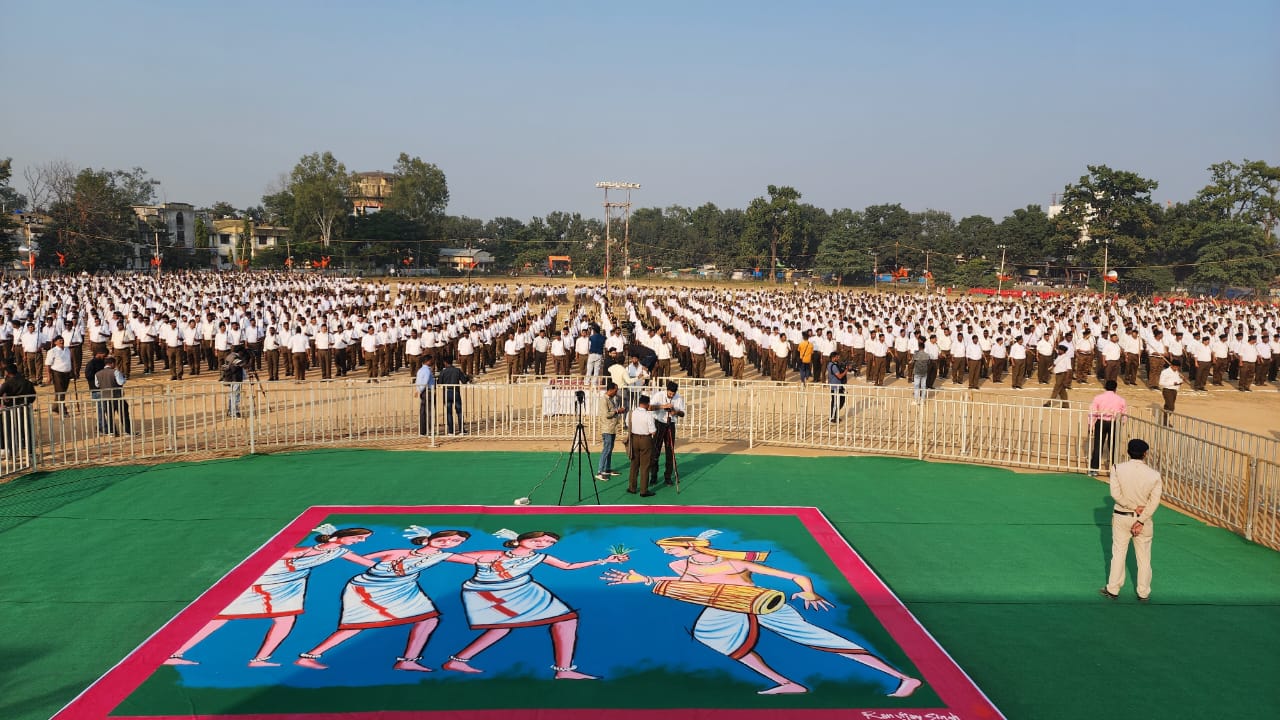
Rashtriya Swayamsevak Sangh (RSS) Sarkaryavah (General Secretary) Dattatreya Hosabale made two significant statements, addressing a programme at Jaipur in the Indian state of Rajasthan on February 2, 2023. He said that all the people living in Bharat(India) are Hindus because their forefathers were Hindus. “Their methods of worship may be different, but they all have the same DNA,” said Hosabale.
A day prior to that, on 1 February, in another programme at Jaipur, he had made another important remark: “We are neither right wing nor left wing. We are nationalist. The Sangh is only going to work in the interest of the nation.”
Why are these two statements significant? First, they are coming from the executive head (Sarkaryavah in RSS is the de facto executive head of the organisation, while Sarsanghchalak is more like a chief mentor) of the world’s largest voluntary organisation — RSS. Second, the RSS’ stand on any issue today influences the national agenda. Third, it helps to negate the propaganda run by RSS baiters to project it as a ‘Hindu militant organisation’, a cliché which has been picked up by the Western media to create the wrong image of a socio-cultural organisation whose volunteers are running more than two lakh welfare projects across the nation. These projects serve marginalised sections of the society cutting across religion, caste, creed and region.
Coming back to what the RSS Sarkaryavah has said. These two statements when put together give you the RSS’ worldview which believes in the concept of ‘Vasudhaiva Kutumbakam’ (The whole world is one family). And all that it does is to strive towards achieving this goal. For that Hindu Dharma is the key for the RSS. Here Hosabale has clearly indicated the difference between ‘Dharma’ and ‘Religion’. Your way of worship denotes your religion not your Dharma. The RSS believes that it is ‘Dharma’ that sustains the world.
Pandit Deendayal Upadhyaya, an RSS pracharak (full-time worker) and ideologue, who later became president of the Bharatiya Jana Sangh (BJS), had explained this concept lucidly when he said, “The distortions of Dharma that we now-a-days see all around us are largely the result of foreign education. The English word ‘religion’ has substantially contributed to distorting the pure meaning of Dharma. The British first heard the word when they came to India. They had no word of an equally comprehensive meaning. So they translated it as religion. Such translation has distorted the meaning of Bharatiya words.”
“Dharma is a very wide term which includes many religions. A religion is a system of worship, and there are many such systems prevailing in this land. But in spite of these systems and sects Dharma is one. Dharma is that which is good for everyone irrespective of the system of worship and can open up for him the way to salvation,” added Upadhyaya.
He further said, “Religion means a creed, or a sect, it does not mean Dharma. Dharma is a very broad concept. It is concerned with all aspects of life. It sustains society. It sustains the whole world. That which sustains is ‘Dharma’. The fundamental principles of Dharma are eternal and universal. Yet their implementation may differ according to time, place and circumstance. The complete treatise on the rules in general and their philosophical basis is the meaning of Dharma. These rules cannot be arbitrary. They should be such as to sustain and further the existence and progress of the entity which they serve.”
Golwalkar-Nehru debate
Regarding the RSS’ worldview of a Hindu rashtra (nation) based on ‘Dharma’ and not religion, the second RSS Sarsanghchalak, MS Golwalkar, quoted an interesting anecdote (Bunch of Thoughts; pp 98-99). Golwalkar said, “There are some who have the habit of dubbing us narrow and parochial in our outlook because of our insistence on the word ‘Hindu’. Pandit (Jawaharlal) Nehru (independent Bharat’s first Prime Minister) too levelled the same charge when I met him once. He said, ‘Why are you always harping upon Hindu, Hindu? By this you are only shutting up yourself within your four walls, not allowing the fresh breeze from the outside world to come in. There should be no walls separating us from the wide world outside. We should pull down all such outdated barriers.’ Pandit Nehru was a big man and he spoke with great emotion.”
Golwalkar further said, “I calmly replied: ‘I totally agree with you that we should allow fresh breeze to come in from all quarters. We should come in contact with and understand the various ideologies prevalent in several countries, sift them and assimilate whatever is beneficial to us. But to do that, is it necessary to demolish the walls of our house and bring down the roofs upon our heads? On the contrary, would it not be wise to keep our house intact and just open the windows and doors to let in the outside breeze? I feel that broadmindedness, if stretched beyond the practical limit, would only end up in finishing our national identity. And I must say it is our so-called narrow national outlook which will ultimately help raising up our nation even while absorbing what is desirable from the outside world.” To this Pandit Nehru remarked, “Well, I conceded that such conviction is needed to put in determined efforts for any cause.”
No to ‘Binary’ approach
The statement made by Hosabale regarding Sangh being neither left nor right but being a nationalist is an outcome of the Sangh’s clear ideological position that is based on holistic approach. Sangh doesn’t believe in the binary of left and right. While many commentators often term it as the ‘right wing’ organisation, Sangh remains the most centrist organisation in Bharat’s public domain during the last 97 years (since its inception). The economic philosophy of Sangh that is based on self-reliance and ‘Swadeshi’( an economic philosophy rooted in Indian cultural traditions) punches the biggest hole in the theory of Sangh being right-wing. As the footprint of RSS continues to expand, the senior functionaries of the organisation define it as the ‘progressive unfoldment’.
In this context one needs to recall a Question and Answer session of prominent people from different walks of life with the present Sarsanghchalak Dr Mohan Bhagwat at Vigyan Bhavan in Delhi on 17-19 September 2018. A journalist asked him specifically, “If the Sangh has no connection with politics, why is the BJP always getting its organising secretary from the Sangh? Has Sangh so far supported other political parties or other organisations? “
Dr Bhagwat’s reply was, “The Sangh can provide the organising secretary to whoever asks for it. However, until now, nobody has made any such request. If someone makes a request, then we will think about it. If their work is good, we can certainly give them one. However, in the last 93 years, we have never supported any political party. We are having a policy and the benefit of growth in our strength goes to the political parties who support that policy. Those who are able to take advantage are benefitted. Those who are unable to take advantage are not benefited.”
To conclude, it is difficult to understand both the RSS and its ideology from a Western conceptual framework. In all likelihood, you would get it wrong as the West has never witnessed such a phenomenon which is quite unique in itself. It is important to have a Bharatiya perspective which is holistic and not confined to categorisations and binaries. This would help one understand why RSS volunteers are nationalists, and why Bharat is considered to be a Hindu Rashtra by the RSS.
(This article was first published in FirstPost. https://www.firstpost.com/opinion/right-word-why-doesnt-rss-consider-itself-to-be-right-wing-organisation-12102492.html)

